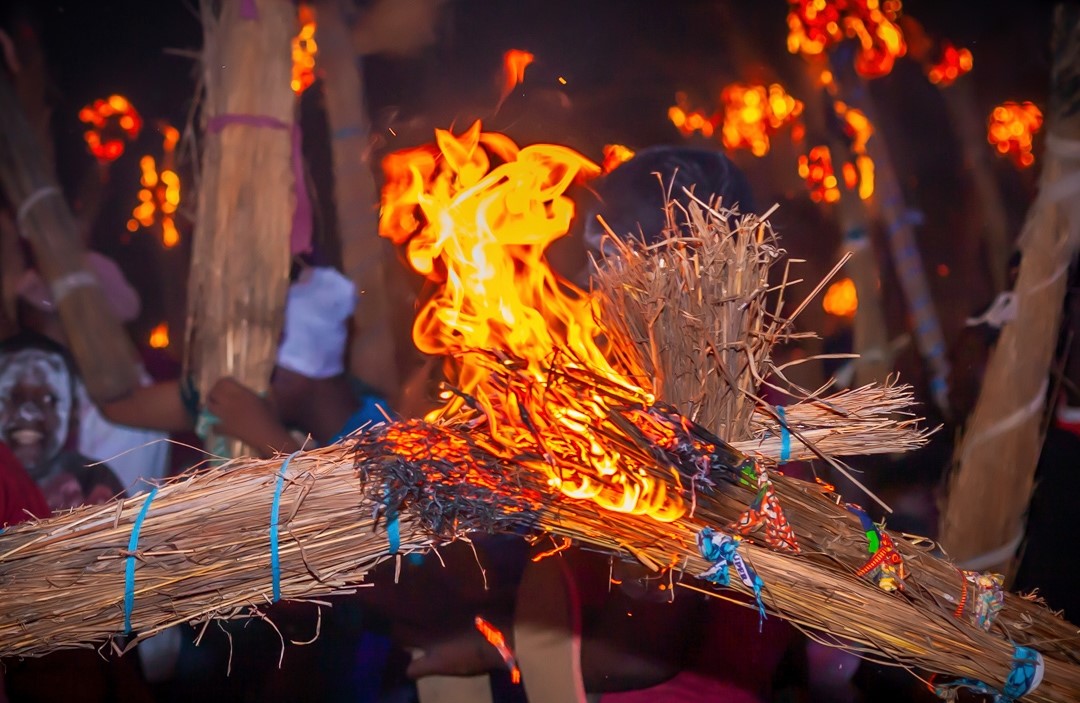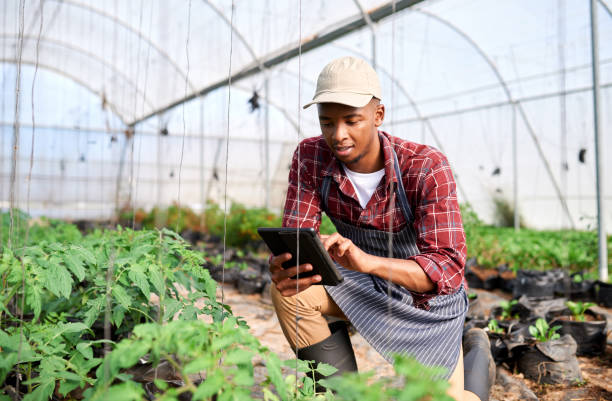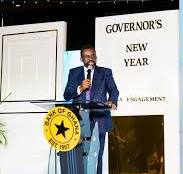
Fuseini Yakubu
Introduction.
This article presents the celebration of Fire Festival in the three main Gbewaa Kingdoms in Northern Ghana. Fire Festival is an annual festival for the people of the Gbewaa Kingdoms. It’s celebrated on the 9th day of the month of fire “Bugum Goli”. The lunar month of Fire Festival “Bugum Goli”, is the first month and beginning of a new year, just like January which is the first month of a new year.
The article will also discuss the prospects and tourism potentials for the celebration of Fire Festival, if it’s well packaged and marketed. In recent times, the way Fire Festival is being celebrated mostly by the youth, sends wrong signals to the people outside the three main Gbewaa Kingdoms. As such, people have negative perception about the celebration of the Fire Festival. This article is to educate readers on the significance of the Fire Festival.
The Genesis and Evolution of the Fire Festival.
The Fire Festival it is believed is the first Festival for the People of Dagbon (Modern Dagbon, Nanung & Mamprugu). The aboriginal Dagbamba are believed to be descendants of prophet Noah.
Fire Festival is a custom emanated from Noah’s time in commemoration of the day the Ark of Noah “rested on Mount Ararat and the people in the Ark came and made fires7”. Tamakloe also, considers the fire festival of the Dagbamba as a custom emanated from Noah’s time in commemoration of the day the Ark of Noah “rested on Mount Ararat and the people in the Ark came and made fires7”. Dagbamba tradition attributes the significance of the fire festival to Prophet Noah; they assign different reasons for the festival.
According to the tradition, when Prophet Noah was about to set out with his Ark, one of his sons got missing. A search for him was commenced. The search continued until night when the son was not yet found. Searching lights were lighted to look for him.
The significance of the Fire Festival therefore is to commemorate the search for Prophet Noah’s son. Whatever the reason, the tradition agrees that the Fire Festival relates to Prophet Noah and the Great Flood.
Furthermore, the lunar month for the Fire Festival “Bugum Goli” is the beginning of the year in the three sister Kingdoms: Dagbon, Mamprugu and Nanung.
The same month “Muharam” is the beginning of the year in Arabia. New Year resolutions are made during the festival and also pray to God for protection, guidance, and prosperity. As part of the celebration, they cut bits and pieces of cooked food and put the same short on dividing walls in their homes.
These pieces of cooked food are supposed to be food for their ancestors and deceased family members. They believed that the spirit of their ancestors visits them on this important day. As such, they have to serve them with food and meat. Every poor home in Dagbon will slaughter fowls for this important day.
The Dagomba, like the Arabs, have twelve lunar months in a year. Even though the names of their months differ, their year begins with the same month. They also end the year with the same month. The number of days in their months is equal. A month is either thirty or twenty-nine days.
The Celebration of Fire Festival.
Fire festival is celebrated on the 9th day of the month “Bugum Goli”. Sacrifices are performed at individual homes in the evening. The meat is then used to prepare meals in the evening. Bunch of grasses are tied for the celebration.
The Overlords of Dagbon, Mamprugu and Nanung will by tradition, formally inform their chief Imams as he and his team of other Muslim clerics have an important role to play in the festival.
The festival is observed at night. The Overlords will light the fire to mark the beginning of the celebration. Until the Overlords light the fire before any other person could do so.
The Overlords and all participants will be in their War Regalia. They also exhibit their weapons and dancing to the tune of War drums and singing of War and other traditional songs. They walk from the east to the west where the remains of Grass bunches are thrown away and branches of herbs are cut by all participants.
Participants move with the branches of the herbs first to the chief’s palace for fortification. They will then continue to the Chief Imam’s house for same fortification.
It is believed that the participants are directly fortified as the spiritual concoction touches their bodies. The herbs are sent to the individual homes which they boiled and used to bath children and the weak who could not participate, to be fortified. The fortification is for protection against any calamities in the new year.
It’s important to note that before the advent of Islam, traditionalists used to prepare herbal concoctions for fortification of the auras or bioenergetic bodies of the celebrants against any evil or against the adverse effects of any impending calamity. With the advent of Islam in the Gbewaa Kingdoms, the Chief Imams have since assumed this role giving an Islamic touch to the preparation of spiritual concoction for the fortification.
On the 10th day of the month “Bugum Goli” the Chief Imam and other clerics engage in private and employing Islamic methods of divination, are able to forecast, foretell or prophesy events that would unfold in the new year.
If some aspects of the forecast happen to do with any impending calamity that could negatively impact members of the community, they also prescribe what sacrifices are there to be made either by heads of the individual families, the Kings or their paramount chiefs in order to seek divine interventions so as to avert its societal impact.
Citizens in the Gbewaa Kingdoms are expected to adhere to the precautions and prescriptions associated with the esoteric induced forecasting made by the Chief Imam and his team of other Muslim clerics vested in the Islamic mystical sciences . This mark the end of the Fire Festival.
Socio-Economic and Spiritual Benefits of the Fire Festival.
- Participants or celebrants gets fortified at least for a year through the bathing of the spiritual/herbal concoction.
- Celebrants excise their bodies through drumming, dancing, and walking for some few kilometers.
- Celebrants are able to socialize with others and make new friends during the celebration.
- Youth gatherings, such as Jams and other traditional dances are also held after the celebration.
- Food vendors and other entrepreneurs such as butchers, provision shops, local poultry sellers among others record high sales during the festive season.
- Special prayers and sacrifices are also observed for protection and prevention of calamities/disaster that may strike
- the kingdoms.
In conclusion, the Fire Festival, if it is well packaged and promoted,as an annual cultural tourism event could attract tourists and possibly investments that could inure to the socio-economic development benefit of the Gbewaa Kingdoms.
Contact Fusheini Yakubu (Research-Oriented Historian),Tel: 0243418562/0202833838,Email: millysdec@gmail.com
BIBLIOGRAPHY
Alhaj Abdulai (Bimbilla Lung-Naa), 2008, oral literature on the advent of Naa Gmantambu to Nanung.
Bagli Naa Mahama Wumbei Mahami, 2013, oral literature on the aboriginal Dagbamba.
Fusheini Yakubu, 2013, History of the Gbewaa States Part I New Edition published by GILLBT Printing Press, Tamale.
Fusheini Yakubu, 2022, History of the Gbewaa Kingdoms New Edition published by Workbook Press LLC USA.
Ibrahim Mahama 2004, History and Tradition of Dagbon, published by GILLBT Printing Press, Tamale.
Tamakloe, E. F. 1931 A Brief History of the Dagbamba People (Accra, Government Printer).




